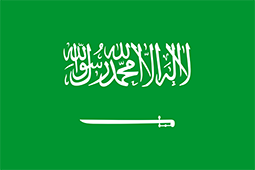
Saudi petchem investments shrug off global capex cuts

Saudi firm Advanced Global Investment (AGIC) and South Korea's SK Gas Petrochemical (SKGP) yesterday announced plans to build a new $1.8bn propane dehydrogenation (PDH) and polypropylene (PP) project in the Saudi industrial city of Jubail.
Construction of the 843,000 t/yr PDH facility and 800,000 t/yr PP units is scheduled to start in 2021, with commercial operations at the project targeted in the second half of 2024.
Propane feedback for the new PDH unit will be supplied by state-owned Saudi Aramco.
AGIC's parent company Advanced Petrochemical currently operates a 455,000 t/yr PDH unit and 450,000 t/yr PP plant in Jubail.
Saudi project plans
The AGIC-SK announcement comes on the back of last year's decision by global petrochemical firm Ineos to build three new plants in Jubail, its first investment in the Middle East.
The $2bn investment, through an initial deal with Aramco and Total, will form part of the planned $5bn Project Amiral complex at Jubail.
Saudi Arabia is actively pushing to expand its downstream product suite, in line with the Saudi Vision 2030 project spearheaded by crown prince Mohammad bin Salman that aims diversify the country's economy away from its dependence on oil.
Infrastructure is also being developed in Yanbu, where a crude oil to chemicals (COTC) plant jointly operated by Saudi petrochemical firm Sabic and Aramco is scheduled to start operations in 2025.
The COTC plant will process 400,000 b/d of crude into 9mn t/yr of chemicals and base oils.
Petrochemicals were at the forefront of Aramco's initial public offering (IPO) late last year, despite investors closing scrutinizing the viability of the $20bn COTC project at a time of global cuts to capital expenditure (capex).
Aramco is currently finalising a deal to buy a 70pc stake in Sabic, with a Saudi-based integration team finalising the new entity's structure.
Global investments on hold
The AGIC-SKGP plans come in stark contrast to deferrals or cancellations of other petrochemical projects around the globe.
Canadian midstream operator Pembina Pipeline this month deferred construction of an integrated PDH plant and PP facility as part of a plan to cut capital spending in response to the decline in global energy prices.
The 550,000 t/yr PDH unit and its associated 550,000 t/yr PP unit, to be located in Alberta, are part of a joint venture between Pembina and Kuwaiti petrochemical firm PIC.
PP projects in Algeria, Turkey and Egypt are also likely to be delayed or potentially cancelled given global economic weakness.
Capex cuts
The world's largest private-sector oil company, ExxonMobil, said earlier in March that it is looking to reduce capital and operating expenses as crude prices plummet and coronavirus outbreak sharply cuts demand.
Crude prices fell by another 7pc today, with benchmark US WTI futures nearing an 18-year low below $20/bl.
Shell and Total also announced plans this month to tighten their belts in response to the sharp drop in oil prices. The companies are planning to cut capex by at least a fifth, reduce costs and suspend share buybacks.
Petrochemical producers in Asia may cut downstream production over the course of 2020 as the combination of surging Opec oil output and lower prices meets coronavirus-induced declines in demand.
SKGC last week announced plans to idle its small cracker in Ulsan from December this year after the plant struggled to stay competitive.
SKGC produces a total of 430,000 t/yr of linear low-density polyethylene (LLDPE)/high-density polyethylene (HDPE) from two lines in Ulsan, as well as another 190,000 t/yr of HDPE at the same site.
Petrochemical production is coming under pressure in India, where at least three major suppliers have declared or intend to declare force majeure after the government imposed a 21-day lockdown last week.
Only China is bucking the trend, as its domestic coronavirus outbreak comes under control. Petrochemical plants in the country are starting to increase production rates to 80-100pc, after weeks of reduced operations.
Chinese producers cut rates at key crackers and derivative units to 50-70pc in February and early March, because of a worker shortage and weak downstream demand.
By Muhamad Fadhil


Trump weighs using $2 billion in CHIPS Act funding for critical minerals

Codelco cuts 2025 copper forecast after El Teniente mine collapse

Electra converts debt, launches $30M raise to jumpstart stalled cobalt refinery

Barrick’s Reko Diq in line for $410M ADB backing

Abcourt readies Sleeping Giant mill to pour first gold since 2014

Nevada army depot to serve as base for first US strategic minerals stockpile

SQM boosts lithium supply plans as prices flick higher

Viridis unveils 200Mt initial reserve for Brazil rare earth project

Tailings could meet much of US critical mineral demand – study

Kyrgyzstan kicks off underground gold mining at Kumtor

Kyrgyzstan kicks off underground gold mining at Kumtor

KoBold Metals granted lithium exploration rights in Congo

Freeport Indonesia to wrap up Gresik plant repairs by early September

Energy Fuels soars on Vulcan Elements partnership

Northern Dynasty sticks to proposal in battle to lift Pebble mine veto

Giustra-backed mining firm teams up with informal miners in Colombia

Critical Metals signs agreement to supply rare earth to US government-funded facility

China extends rare earth controls to imported material

Galan Lithium proceeds with $13M financing for Argentina project

Kyrgyzstan kicks off underground gold mining at Kumtor

Freeport Indonesia to wrap up Gresik plant repairs by early September

Energy Fuels soars on Vulcan Elements partnership

Northern Dynasty sticks to proposal in battle to lift Pebble mine veto

Giustra-backed mining firm teams up with informal miners in Colombia

Critical Metals signs agreement to supply rare earth to US government-funded facility

China extends rare earth controls to imported material

Galan Lithium proceeds with $13M financing for Argentina project

Silver price touches $39 as market weighs rate cut outlook

















